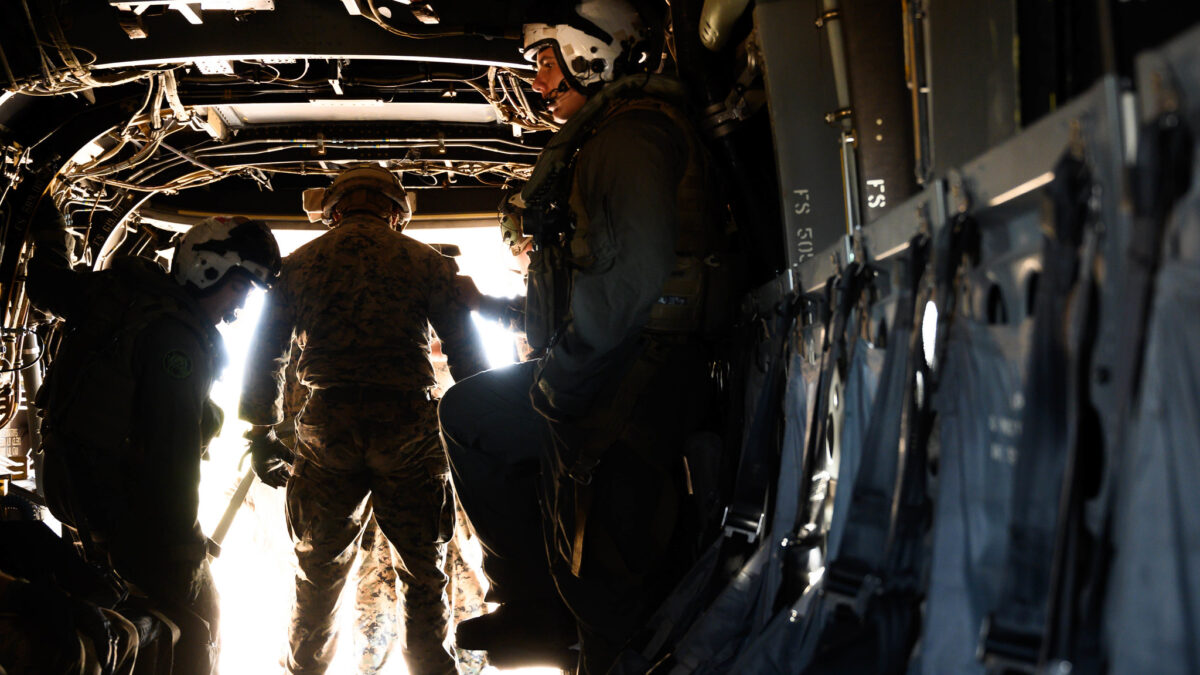No, Affirmative Action In The Military Doesn’t Boost National Security, It Erodes It:
Warfighters deserve the best-qualified leaders available, regardless of race. Providing them is a moral and national security imperative.
The Supreme Court will soon consider Students for Fair Admissions v. Harvard/UNC. The court’s decision will determine whether our military’s future leadership will consist of the “best-qualified” individuals instead of simply those “qualified” as defined by an ever-moving standard meant to accommodate political and cultural goals.
Affirmative action, in the form of racial preferences, pervades today’s military despite federal law that, if enforced, would prevent it. Section 601 of the Civil Rights Act of 1964 prohibits racial “discrimination under any program or activity receiving Federal financial assistance.” Racial preferences in the military also violate our Constitution’s Fifth Amendment Due Process Clause.
Department of Defense (DOD) surrogates speciously have argued to the Supreme Court that the DOD’s use of racial preferences in service academy admissions is “mission critical” and “indispensable to” national security. That strategy was contrived only because of the legal framework courts must use when examining practices that violate the Constitution. Evidence must clearly prove a “compelling state interest” sufficiently strong to justify the drastic measure of suspending the constitutional provision that prohibits such practices.
DOD’s surrogates made their preferences-are-essential-to-national-security argument first in 2003 in Grutter v. Bollinger. Unrebutted, that far-fetched claim misled the Grutter majority into a falsely predicated, 5-4 decision authorizing the limited, narrowly tailored use of racial preferences in college admissions for the sole purpose of gaining the “educational benefits of diversity.” The DOD thereby gained some of the judicial cover it sought for its racial preferences practices in service academy admissions.
Veterans for Fairness and Merit (VFM), an organization that has 627 members, 21 Medal of Honor recipients, 45 POWs, 119 general officers (12 four-stars and 25 three-stars), with 934 combat tours, 476 combat leader positions held, and more than 900 combat valor awards to its name, filed an amicus brief in Harvard/UNC to correct the record based on their first-hand experiences. --->READ MORE HERE
If Supreme Court ends affirmative action, how will the military adapt?
On Monday, the Supreme Court will hear a pair of cases that many legal experts expect will overturn the legal basis for affirmative action and, perhaps, upend how the military chooses its officers.
The Army, Navy and Air Force academies practice affirmative action — the policy of using race as a factor in admissions — to boost diversity, as do many colleges and universities that offer ROTC programs.
The two cases before the court could change that, challenging Harvard College and University of North Carolina admissions practices as racially discriminatory and asking for a legal ban on affirmative action.
The petitioners, anti-affirmative-action organization Students for Fair Admissions, allege that Harvard discriminates against Asian American applicants in favor of other minority candidates. As part of its evidence, Students for Fair Admissions points to lower acceptance rates for Asian American applicants than for non-Asian Americans.
If the group prevails and affirmative action is found unlawful, the result could be less diversity in ROTC programs at private and public institutions alike, defenders of affirmative action have argued.
In the University of North Carolina case — which could apply to the service academies — Students for Fair Admissions maintains that it is unconstitutional for any public school to use race in its decisions.
Dozens of former flag officers and the top Pentagon lawyer already have started raising concerns that a less racially diverse officer corps would reduce military effectiveness.
At the same time, hundreds of veterans have argued in a separate legal filing that affirmative action itself hampers the services’ effectiveness. --->READ MORE HERE
If you like what you see, please "Like" and/or Follow us on FACEBOOK
here, GETTR
here, and TWITTER
here.



No comments:
Post a Comment